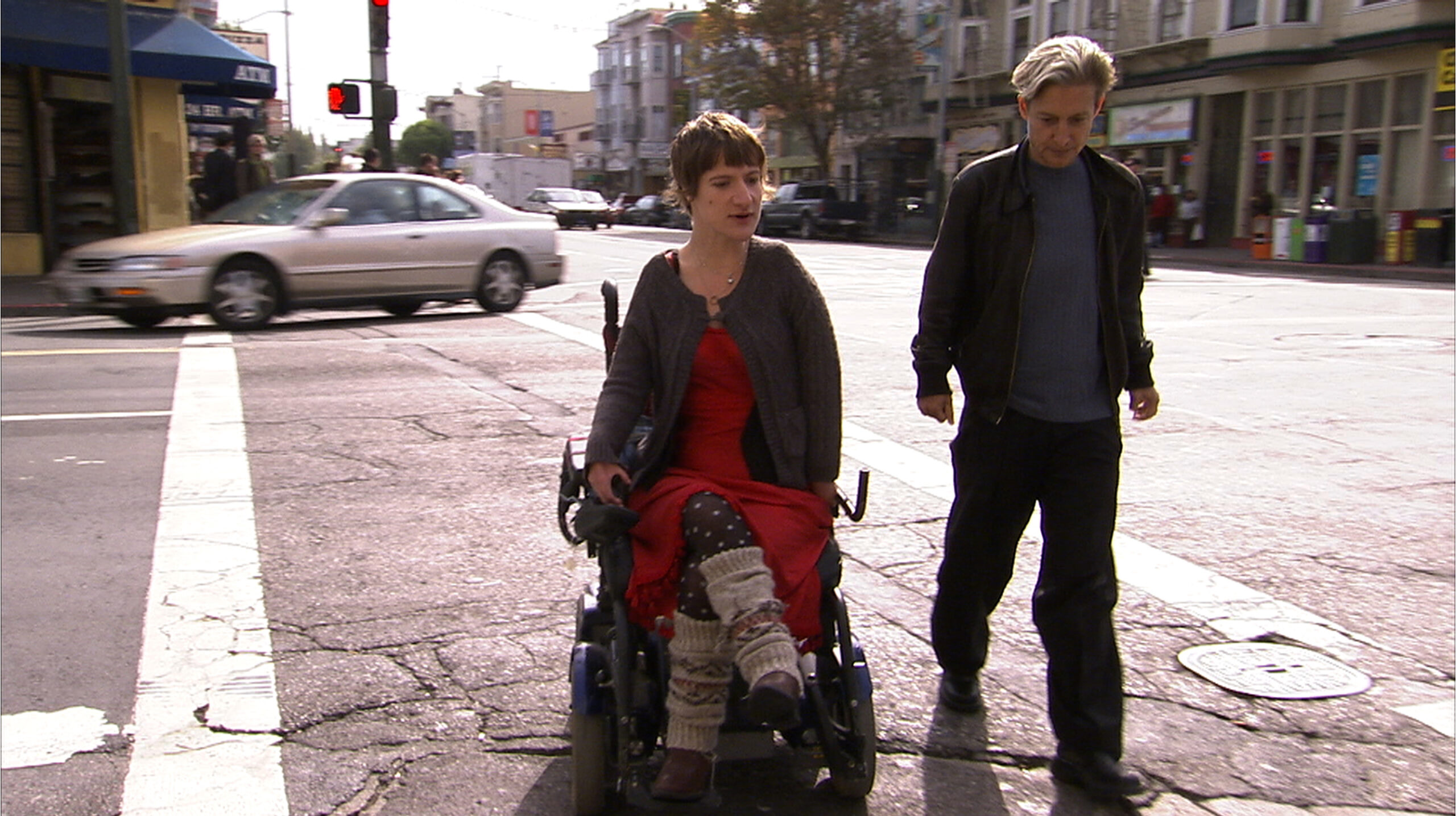By Chlotrudis Independent Film Society
Rating: 3.5 cats
Director: Astra Taylor

Country: canada
Year: 2009
Running time: 87
IMDB: http://www.imdb.com/title/tt1279083/
Bruce says: “Inspired by Plato’s statement ‘The unexamined life is not worth living…,’ Astra Taylor has made an intellectually challenging film that is a joy while at the same time not completely satisfying. Through the course of EXAMINED LIFE she interviews about eight philosophers each of whom speaks on a specific topic. Some of the interviews are more like monologues. The overlying themes are ethics and social justice. During the dialogues, the philosophers are always in motion; cutaway shots define their immediate environment.
“Cornel West begins the show, preaching from the back seat of a car travelling down Broadway in New York City. While I do not question the man’s intellect, I find him bombastic and didactic. He talks and talks and the true meaning of his rants is often abstruse. (Luckily the other philosophers are more attuned to the listener’s train of thought.) West returns to the screen twice more. In the middle of the film he talks about how ‘philosophy is not just the realm of poets but of musicians.’ At the end he speaks of romanticism, racism and the gift of time.
“Next Avital Ronell strolls through a park and rambles on. She quotes Diderot, ‘The first step towards philosophy is incredulity.’ She speaks about how we must be suspicious about the promise of meaning because it has a fascist core. Craving for meaning is a devastating, endless quest. ‘How do you behave ethically without meaning?’ she asks.
“Peter Singer talks about ethics and animal rights. A child is drowning in shallow water. You are wearing expensive shoes. Do you rescue the child and ruin the shoes? Of course, however, we do not boil down such actions by being motivated to ‘make our lives more meaningful when we contribute to making the world a better place.’ We don’t challenge common sense morality by thinking things through; otherwise we could not condone factory farming with the premise that humans have the right to justify treating animals – other living creatures – horrendously.
“Martha Nussbaum, Professor of Law and Ethics at the University of Chicago, walks along Lake Michigan a few blocks away from the university. She speaks of the differences between European and American views of democracy. Critics say European democracy creates a ‘nanny state.’ In America a real man needs no one, no love, and is totally self sufficient. Such reasoning implies that all parties in the social contract are roughly equal in physical and mental capacities. For starters that disenfranchises all children and the elderly.
“Michael Hardt talks about revolution; Slavoj Žižek wanders through a dump site speaking of ecology, the search for meaning when disaster strikes, and trash. Judith Butler accompanies Sunaura Taylor on a walk. Taylor refers to their wanderings as such even though she is in a wheelchair. Butler speaks about the social repression of the disabled and the need for a social model of disability.
“For most of us, philosophy is a difficult and demanding topic for conversation. It is equally challenging as a subject of film. This is the second of Astra Taylor’s films about philosophy; the first, ZIZEK!, was devoted to Slavoj Žižek. She is filling a much needed gap and hopefully her films will become increasingly more accessible as she hones her craft. 3.5 cats
“(EXAMINED LIFE screened at the 2008 Woodstock Film Festival.)“
